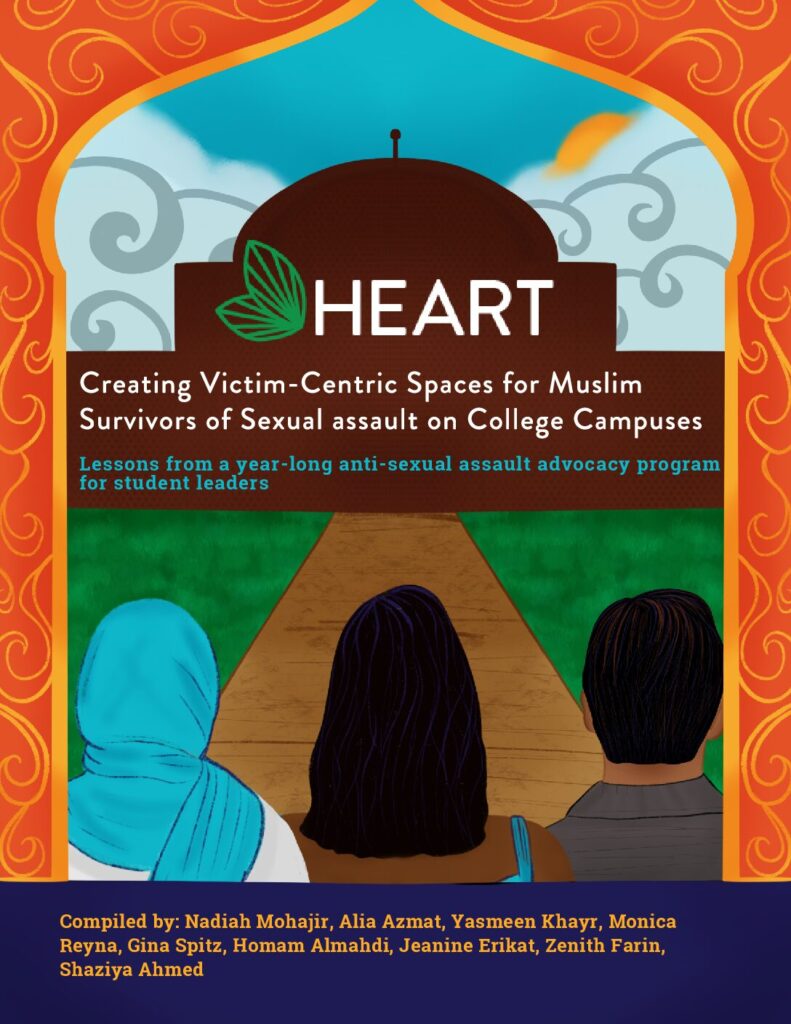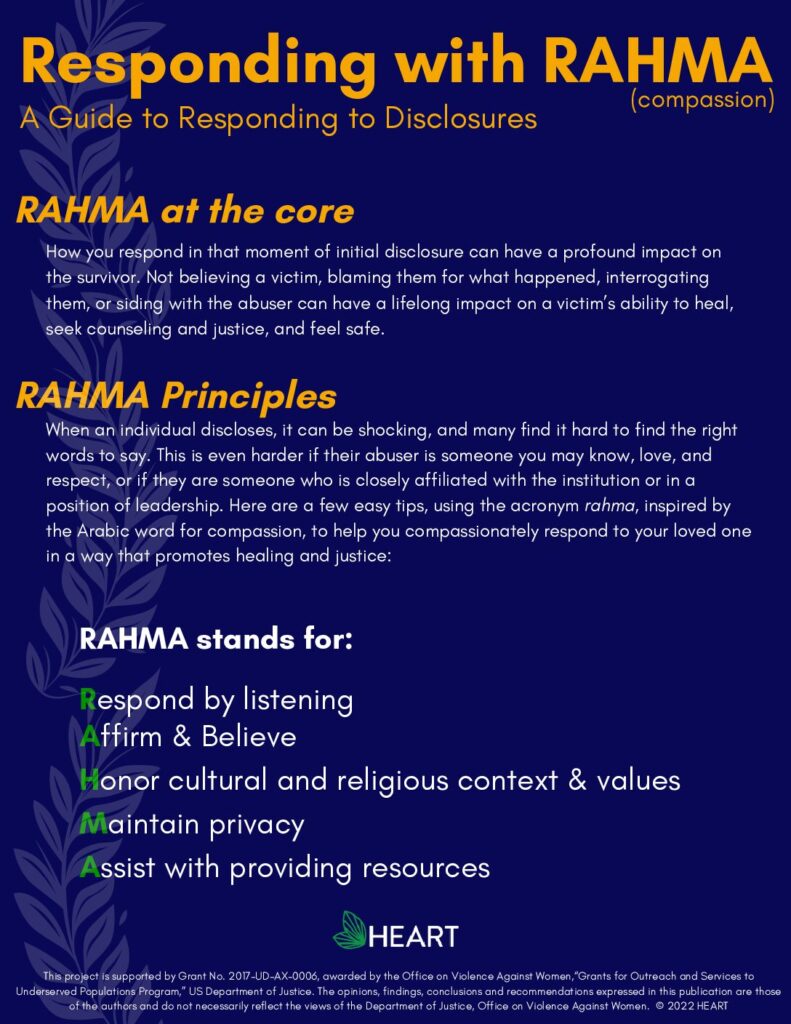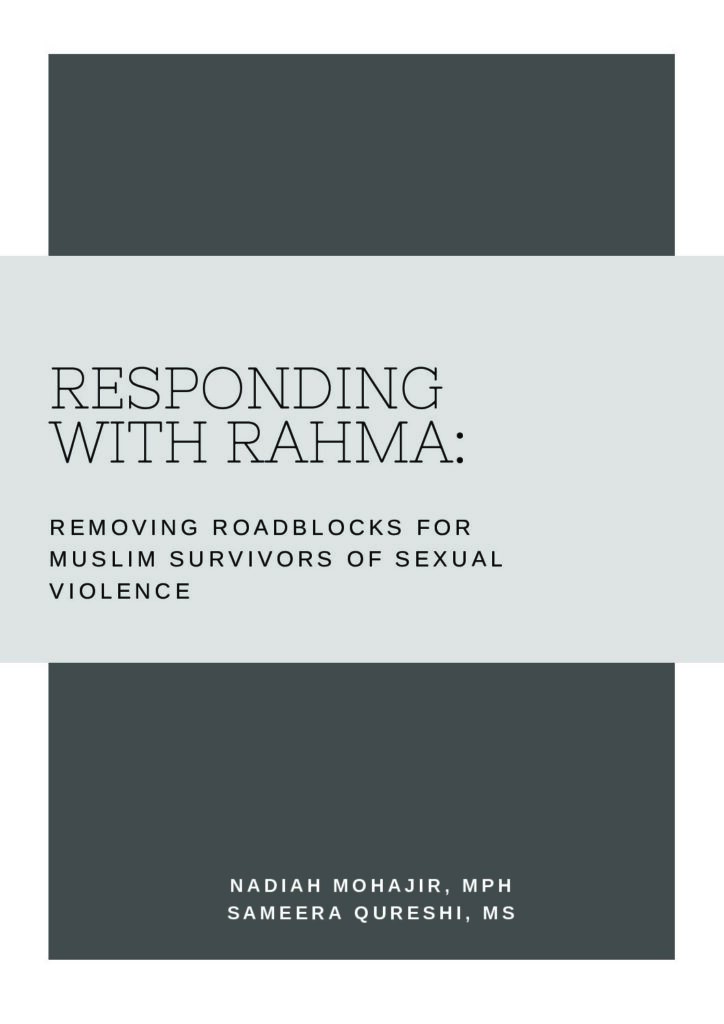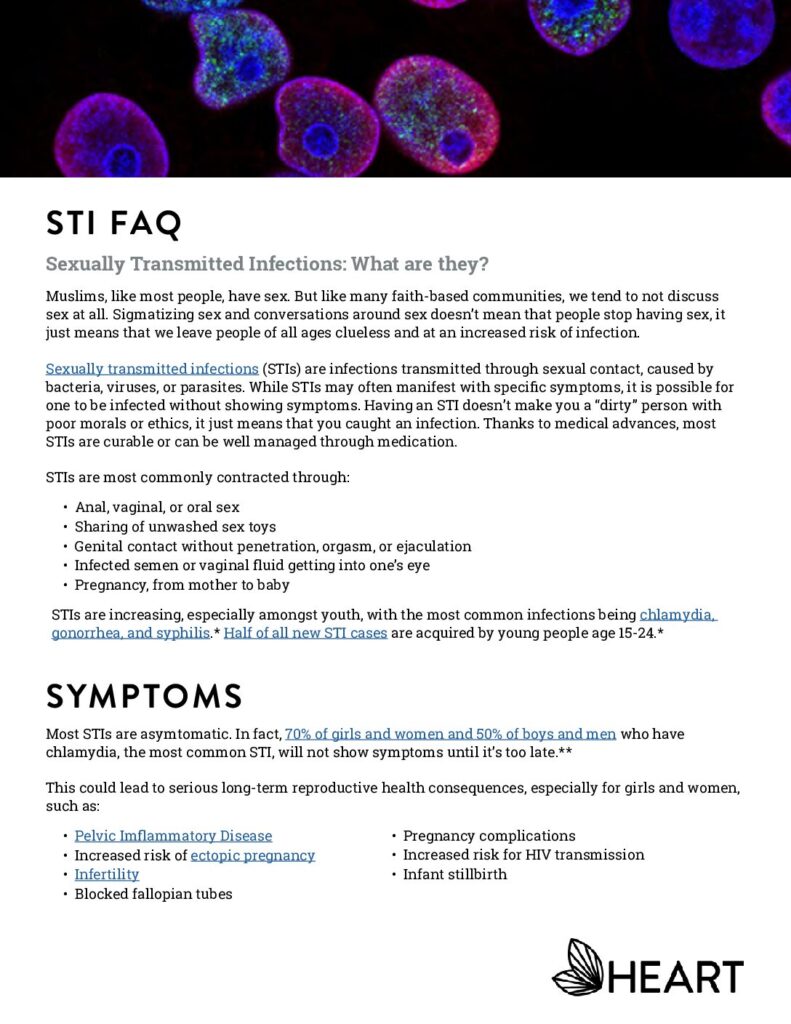
The Muslim tradition is rooted in the concepts of justice, upholding the sacred inviolability of people, and commitment to addressing oppression (Mattson, 2019). Moreover, gender-based violence in all its forms is antithetical to Islam and God’s commands (al-Hibri, 2003). Therefore, Muslim communities, in partnership with trained professionals, can play a key role in addressing gender-based violence in a manner that is affirmed by the core principles of their faith. Muslims can be a vehicle for raising awareness of the prevalence of gender-based violence, advocating with and for survivors, and actively working to build spaces free of violence and oppression.

n partnership with the Center for Urban Research and Learning at Loyola University Chicago, HEART conducted a program evaluation in order to gauge its effectiveness and inform future programming.
The following is a research report of the findings.
Responding with RAHMA has been our theme for this year's (2018) Sexual Assault Awareness Month (SAAM). The following video has been created to uplift narratives of survivors within our communities, and how we can all respond with RAHMA.

The RAHMA framework (inspired by the Arabic word for compassion) offers practical steps to help you respond to a disclosure in a way that centers the survivor's needs and supports their healing journey.

1 in 4 women are victims of sexual violence in their lifetime and more than 68% of sexual assault victims choose not to report their assault. This paper (written for the Hurma Project Research Conference in January 2020) explores the barriers to sexual violence response, intervention, and prevention in Muslim communities as well as the opportunities in those areas using a public health framework.

An introductory toolkit, this resource targets anyone interested in starting the conversation about sexual health with Muslim youth in a way that is mindful of the community’s cultural and religious values. Perfect for the individual who may not necessarily work with Muslim youth full-time, but still interacts with them on a regular basis, such as the Sunday School teacher, the youth group leader, or a committed parent. This toolkit raises awareness about why it is important to start speaking with Muslim youth about sexual and reproductive health, and offers some tips and strategies on how to begin those conversations in a way that is true to public health science and also aligned with the Islamic tradition.
HEART hosted a series of four webinars during Sexual Assault Awareness Month (SAAM in April 2020. This webinar recording focuses on defining sexual violence, its prevalence, and how it manifests in Muslim communities. American Sign Language (ASL) interpretation is available for the duration of the video.

From the HEART to Heart video regarding Sexually Transmitted Infections, this handout gives foundational and practical information about sexually transmitted infections.
